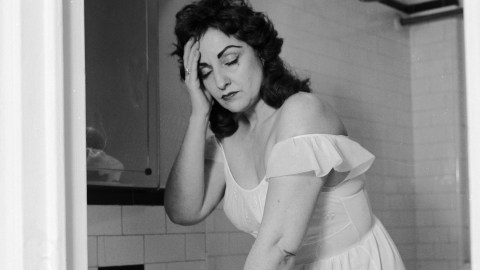Would You Take a Hangover Pill?

Per Johansson was surprised to discover a moose trapped in an apple tree. Stumbling into a giant quadruped with only one hoof touching the ground, the Swedish native believed someone was playing a joke. Turns out the moose had gotten tipsy munching on fermented fruit—the only joke was on the animal itself.
Animals enjoy altering consciousness, none more than humans. Jugs designed for fermented beverages date back at least twelve thousand years. Terrence McKenna believed our ancestors received an evolutionary boost from psychedelic mushrooms. Various substances have informed rituals for, well, we can’t be sure, but certainly a long, long time.
Creativity and inebriation are old bedfellows. Hemingway drank to ‘make other people more interesting,’ while Bukowski wanted to be joggled out of the ‘standardism of everyday life.’ Benjamin Franklin found wisdom in wine, while F. Scott Fitzgerald drank so that the drink could, eventually, take him. Sinatra called alcohol ‘man’s worst enemy.’ He qualified that in a saintly manner: ‘the bible says love your enemy.’
Yet, we all know the damage alcohol causes. Bukowski recognized it as a slow suicide; Hemingway did just that after a lifetime of drinking led him into depression. Jack Kerouac passed at forty-seven thanks to cirrhosis. Dylan Thomas often bragged about his drinking prowess, until slipping into a coma and dying after a few beers in Greenwich Village.
Writers honor alcohol publicly; most humans do such in private. Eighty-nine percent of adult Americans have drank at some point; globally, alcohol is believed to exceed one trillion dollars in sales. While certain religious groups ban alcohol outright, it is predominantly considered a benign substance in society, a social lubricant and weekend getaway. Ironically, it is also one of the most damaging substances, from the slow death of alcoholism to the tragedy of automobile crashes.
What if, then, researchers could create a pill that sobers you up? Pill mentality has long seduced public imagination. Aspirin is a common response to numerous minor ailments; pain is treated (and over-treated) through opiates. In the eighties, pharmaceutical behemoth Hoffman-La Roche developed Ro15-4513 as a potential antidote to alcohol overdose. The idea of using it to sober up the morning after tickled the fancy of many.
The drug never made it to market. Being short-acting, several doses were necessary. Side effects include anxiety and convulsions. The drug itself served more as a mask than cure, like antacids.
Hoffman-La Roche’s failure only meant others would try harder. Enter dihydromyricetin (DHM). An extract derived from raisin trees, the Chinese have been using it to treat hangovers for centuries. This too could be a mask; the receptor this compound blocks is not the only one implicated in drunkenness. What you don’t feel might be more damaging than what you do.
As Maggie Koerth-Baker writes in the Atlantic:
DHM could make people feel less drunk without actually making them sober, with potentially disastrous results if they were to get behind the wheel or otherwise misjudge their impairment.
One clinical trial with DHM did show promising results in nonalcoholic fatty liver disease, including improved glucose and lipid metabolism, as well as anti-inflammatory responses. Of course, we’re talking about the body’s response to alcohol. That hasn’t stopped vitamin and supplement companies from marketing DHM to prevent hangovers and even ‘brain-fog.’
I understand the impetus for designing an anti-hangover pill. I’m not a good drinker, both in terms of quantity (one to two a week, if at all) and quality (I get tired quickly). Visiting New York City last week, it took me all of Friday to recover from five whiskeys on Thursday night catching up with old friends. To me, an occasional night out is worth it if the social setting is right.
Yet I’m not the target audience for such a pill. Working in fitness, I prefer to feel good in the morning. I also enjoy feeling the effects of whatever I put into my body; it keeps me aware of my health. This includes sugar, marijuana, media, and alcohol.
A hangover pill sounds like a common sentiment in fitness: burn off calories by brutalizing your body. Nice idea, but that’s not how our bodies work. We manage weight through diet. Exercise, while important for a number of reasons, only has a minor say in energy management and weight levels.
Being rewarded without doing the work will probably forever be part of human psychology. If we’re putting work into drinking, we need to pay the price as well. As Oscar Wilde said,
After the first glass, you see things as you wish they were. After the second, you see things as they are not. Finally, you see things as they really are, and that is the most horrible thing in the world.
The hangover, horrible as it is, is how drinking really is. You might wish for a cure, but I’m not sure the price would be worth it.
—
Image: Hulton Archive / Getty Images
Derek Beres is a Los-Angeles based author, music producer, and yoga/fitness instructor at Equinox Fitness. Stay in touch @derekberes.





